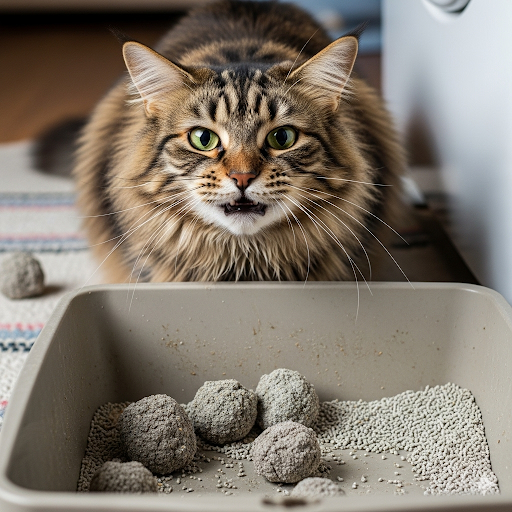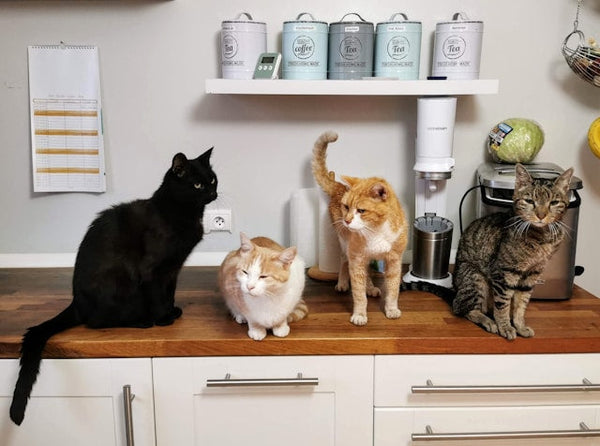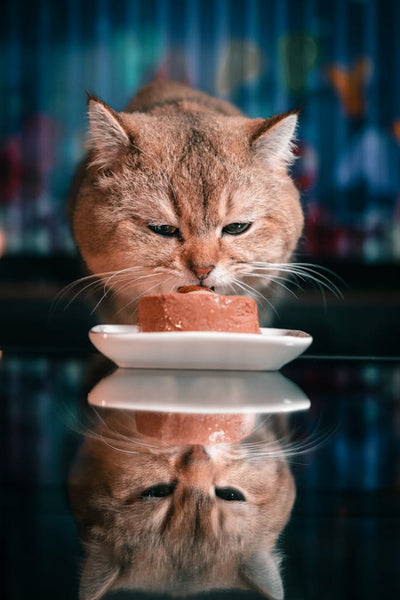If you're a cat parent, you've probably asked yourself this question at some point: "Why do my cats keep meowing?" Whether it's a 6 a.m. wake-up call or a midnight serenade, persistent meowing can be confusing — and sometimes, downright frustrating. But rest assured, your cats aren't just making noise for no reason.
Let’s decode the possible meanings behind all that meowing and explore what your feline friend might be trying to tell you.

1. They’re Hungry (Again)
This is the most common and obvious reason. Cats quickly learn that meowing gets your attention — especially when it’s close to feeding time. If your cat starts vocalizing when you're near the kitchen or opening a can, they’re probably just saying, “Hey, don't forget my dinner!”
Tip: Try feeding on a consistent schedule. Cats love routine, and predictable meal times can reduce food-related meowing.
2. They Want Attention
Some cats are more social than others, and meowing can be their way of initiating play or petting time. If your cat is meowing while rubbing against you, following you from room to room, or pawing at your leg, they're probably craving a little love.
Fun Fact: Adult cats typically use meows to communicate with humans — not with each other.
3. They’re Bored or Stressed
Indoor cats, especially, can become restless if they don’t get enough stimulation. If your cat is meowing more than usual and seems agitated or destructive, they might be bored — or dealing with stress from changes in the home.
Solutions: Try rotating toys, adding a window perch, or introducing puzzle feeders to keep them mentally and physically engaged.
4. They’re in Heat (Or Looking for Love)
If your cat is unspayed or unneutered, loud and frequent meowing could be mating behavior. Female cats in heat are notoriously vocal, and males can become equally noisy if they sense a female nearby.
Vet's Advice: Spaying or neutering your pet can significantly reduce these behaviors — and has health benefits, too.
5. They’re Not Feeling Well
Sometimes, meowing is your cat’s way of signaling discomfort or illness. If the meowing seems unusual, excessive, or is accompanied by other signs like hiding, poor appetite, or litter box issues, it’s worth consulting your vet.
Reminder: Cats are good at hiding pain. A sudden change in vocalization could be their only cry for help.
6. They’re Getting Older
Senior cats can develop cognitive issues, including disorientation or anxiety, which might make them more vocal — especially at night. This is sometimes referred to as feline cognitive dysfunction and is similar to dementia in humans.
What to Do: Talk to your vet. They may recommend dietary changes, medications, or ways to make your home more senior-friendly.
7. They’re Just Chatty by Nature
Some breeds — like Siamese, Bengals, and Sphynx — are naturally more vocal than others. If your cat has always been a little chatterbox, it might just be part of their personality.
Enjoy the Conversation: Talk back! Some cats enjoy a little back-and-forth with their humans, and it can strengthen your bond.
Final Thoughts: Listen with Curiosity
While frequent meowing can be annoying, it's usually a sign your cat is trying to tell you something — not just making noise for the fun of it. The key is to pay attention to patterns and context. With a little observation and empathy, you’ll likely find that their “meows” turn into a meaningful conversation.
So next time your kitty lets out a dramatic “Mrrrow!”, ask yourself: Are they hungry? Bored? Lonely? Or just being their fabulous, vocal self?
Your cat isn’t just meowing — they’re talking to you.



